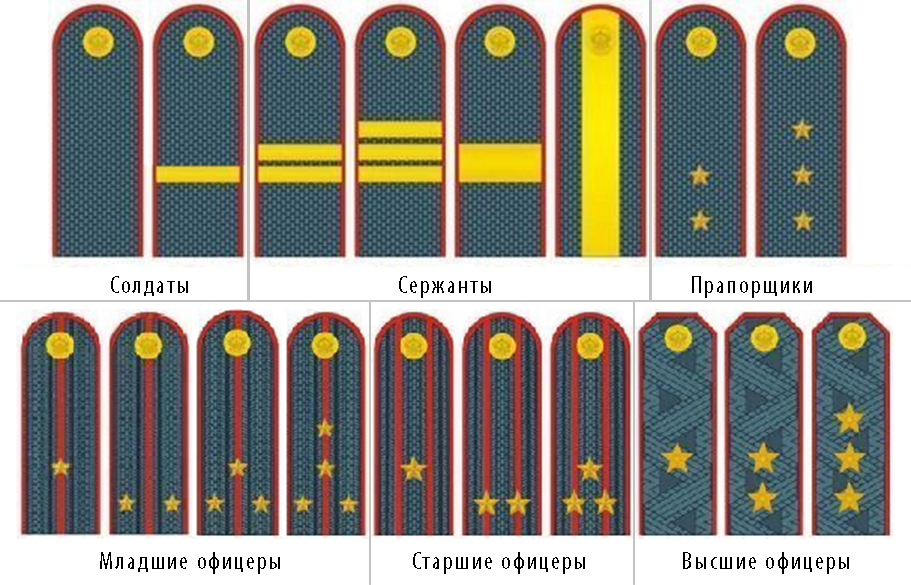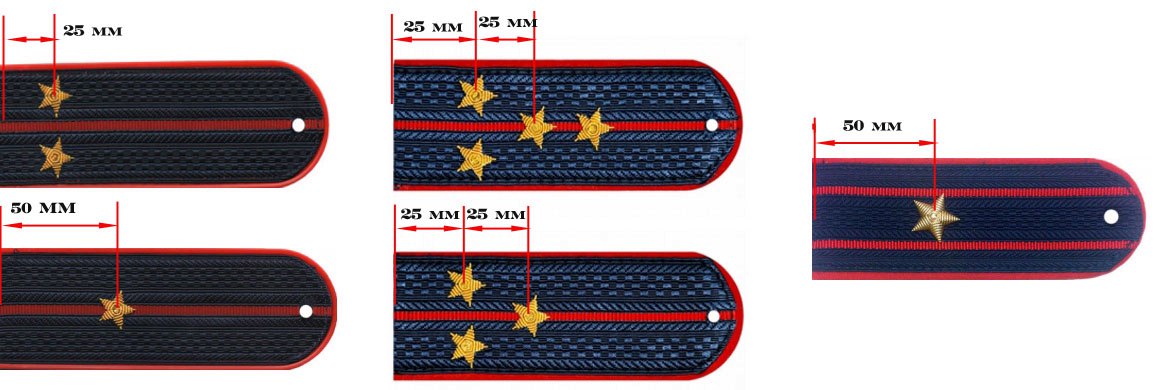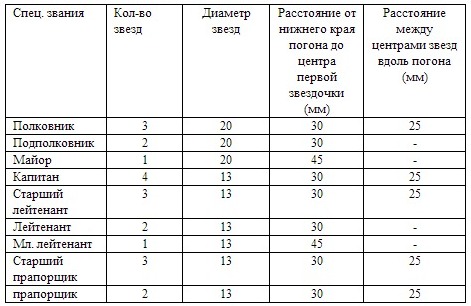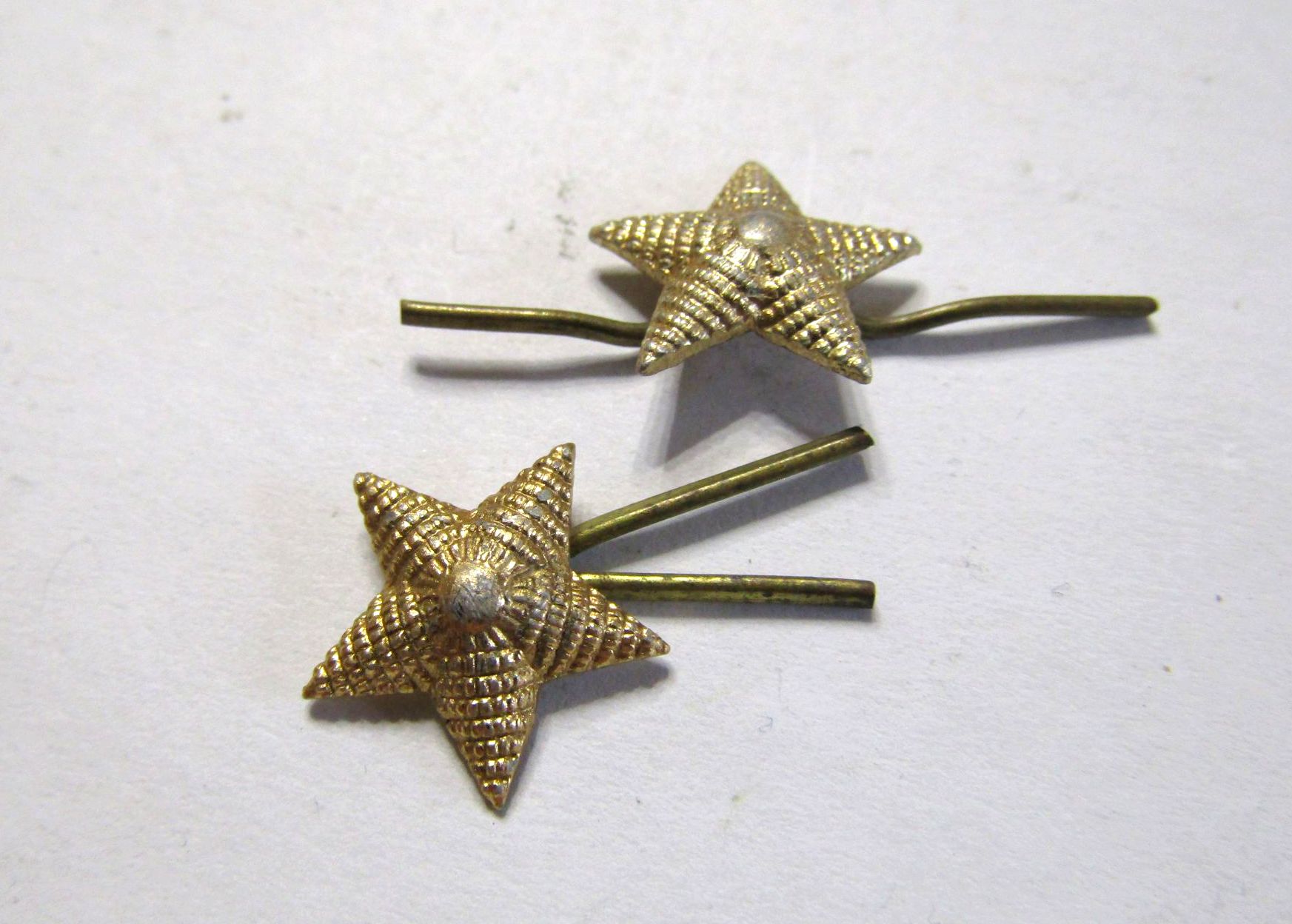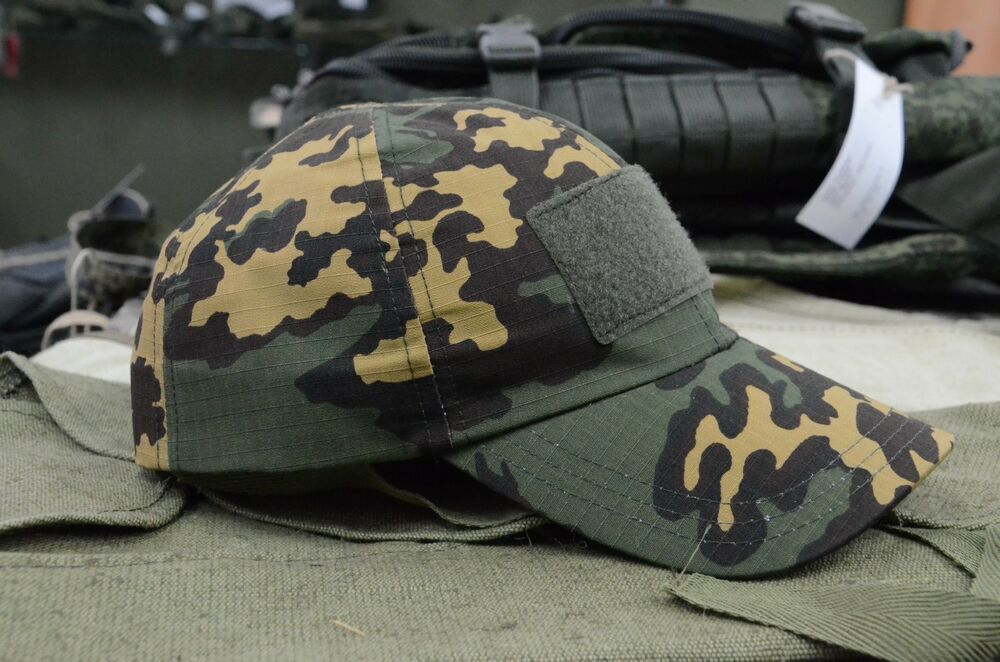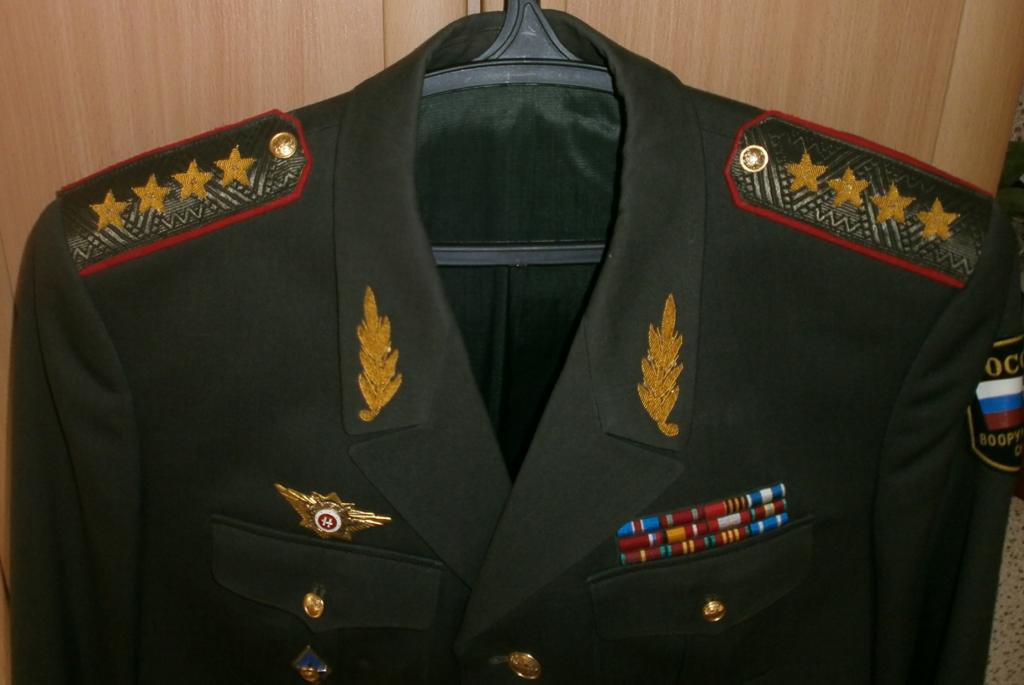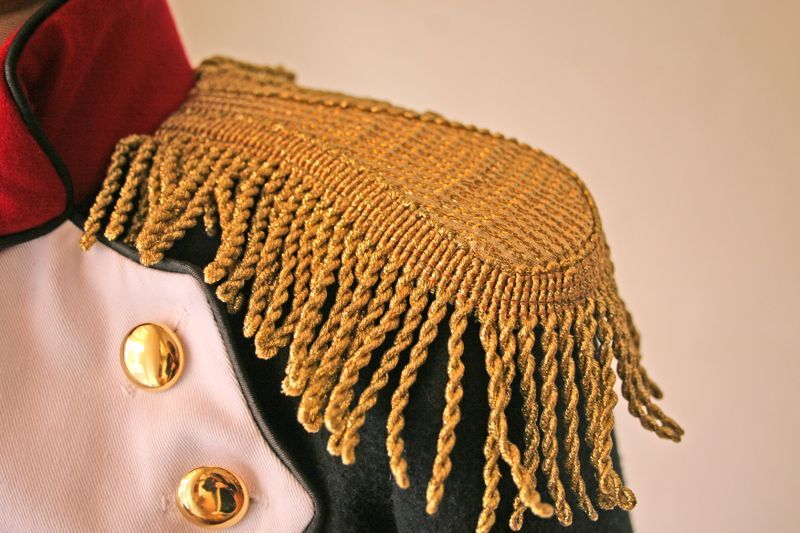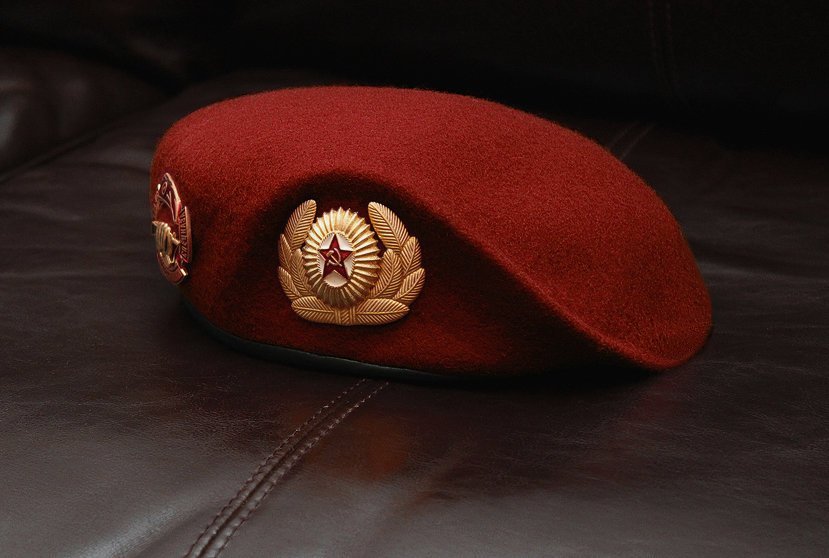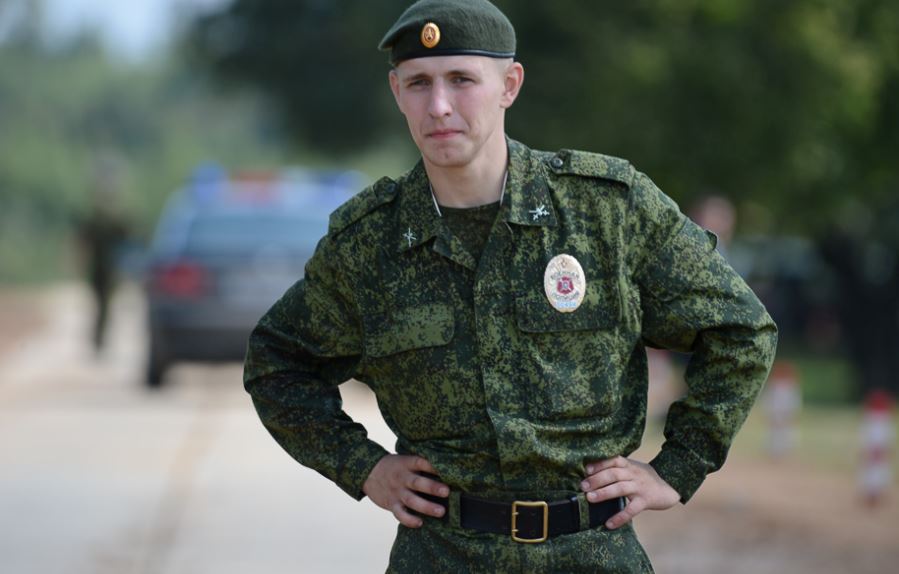Not all civilians know how to navigate ranks and titles. However, one has to deal with the Ministry of Internal Affairs quite often, so everyone should know what police shoulder straps look like in Russia. You can easily understand who a particular insignia belongs to by the uniform. It is not difficult to understand the stars and stripes; tables and reference books will help with this.
History and features
For the first time, shoulder straps for the police were introduced by the decree of I. V. Stalin from 1943 "On insignia". Their modern appearance is practically no different from the Soviet one. Features:
- The stars on shoulder straps vary, and their number depends on the rank of the employee.
- Each division of the Ministry of Internal Affairs has its own branded patches.
- The shoulder straps of police and military officers look the same.
- Inappropriate appearance of epaulettes (for example, stripes in poor condition) entails disciplinary liability.
Modern police shoulder straps differ from the old model in that next to the button there is a new emblem of the Ministry of Internal Affairs. It consists of two swords placed crosswise against the background of a round English shield.
The transitional version is a combination of an old-style epaulette with new insignia. In Russia, this is a combination of a 1994 product with stars introduced in 2013.
Not only do the stars on the shoulder straps of senior and junior ranks differ. The collar emblems look like a yellow shield with swords. If the employee has a special police rank (excluding privates), a horseman with a spear, killing a dragon, on a red field, is added to this symbol. Removable sleeves are used to place plates.

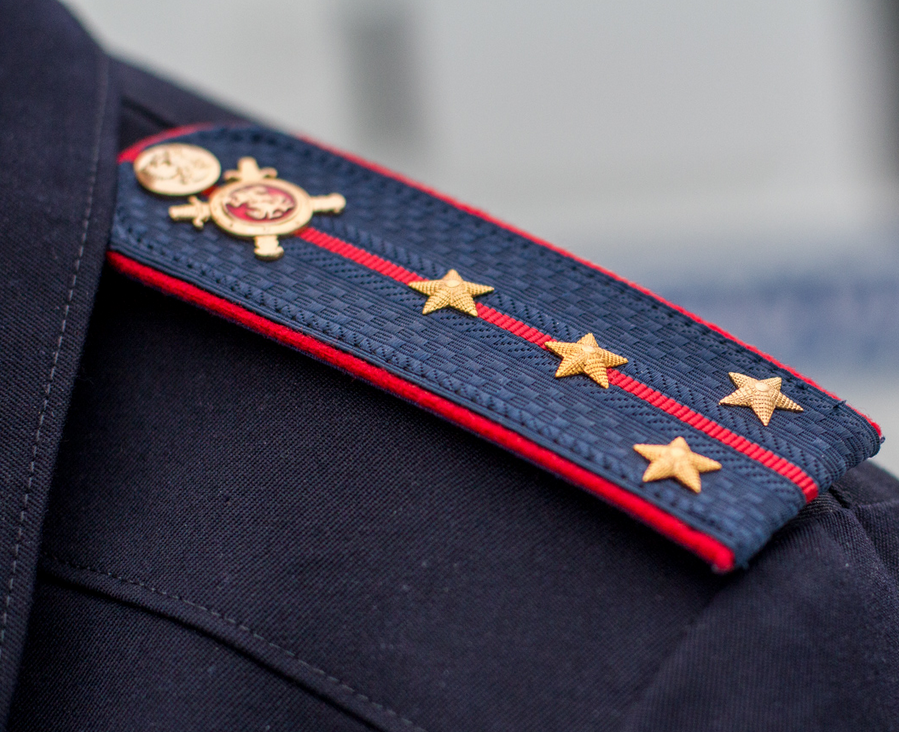
Varieties
You can determine the ranks on the shoulder straps by the stars, or by the color. The ceremonial shoulder insignia of a sergeant major or sergeant have a rounded shape, they are golden-yellow with thin red stripes. Everyday epaulettes are also oval, but are designed in gray-blue tones with a scarlet edging. The false version is gray, without a border, with one or more stars.
| Rank | Features of shoulder straps |
| Cadets | Trapezoidal, without a border, with yellow stripes and the letter "K" of the same shade |
| Junior ranks | Khaki-colored shoulder straps with edging, some with small stars |
| Middle ranks | Lieutenant's shoulder straps, for example, with a light protective color, without edging, with maroon gaps |
| Commanding staff | Rectangular with a trapezoidal end, blue with a red edge. The stars can be located either directly on the stripes or between them. |
False field or removable shoulder straps are usually worn with the everyday jacket and winter uniform. The design of the epaulettes of police cadets was practically no different from the insignia of students of military schools, this has not changed. Now they have a field of protective color, previously it was maroon. In addition to the shoulder elements of the uniform, junior lieutenants and higher-ranking officers are required to wear sleeve insignia.
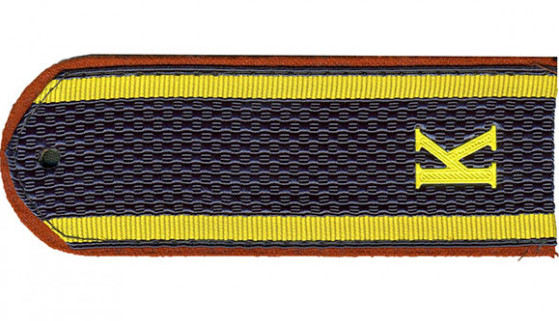
Insignia depending on rank
The insignia are placed on the shoulder straps depending on the rank. The number of stripes may also vary. Each rank, from private to general, has its own color scheme.
The table of stripes on police shoulder straps and removable sleeves allows you to easily navigate the insignia. Specialized schools devote a lot of time to this. However, an inexperienced person may find it quite difficult to navigate the ranks, since the epaulettes seem to be of the same type at first glance.
Privates
Some epaulettes have stars. The most junior ranks have stripes instead. The sergeant major has no emblem.
| Rank | What insignia are present? | The arrangement of stars, their diameter and quantity | Position and number of stripes |
| Junior Sergeant's Shoulder Straps | Stripes, emblem | No | Two, parallel to each other |
| Sergeant | Same | No | There are three stripes on the shoulder straps, in the center |
| Senior Sergeant, differences from junior | Same | No | One wide one, closer to the emblem |
| Sergeant Major | Just a stripe | No | One wide one, along the shoulder strap |
| Ensign | Stars, emblem | The warrant officer's shoulder straps have two of them, one after the other, 20 mm. | No |
| Senior Warrant Officer | Same | Three, also 20 mm | No |
The shape and color of the insignia for all junior ranks are the same, in this they resemble military epaulettes. The shoulder straps themselves are gray. The insignia are yellow, the shape is semicircular. To understand the system, the main thing is to know at what distance the stars are located on the ensign.
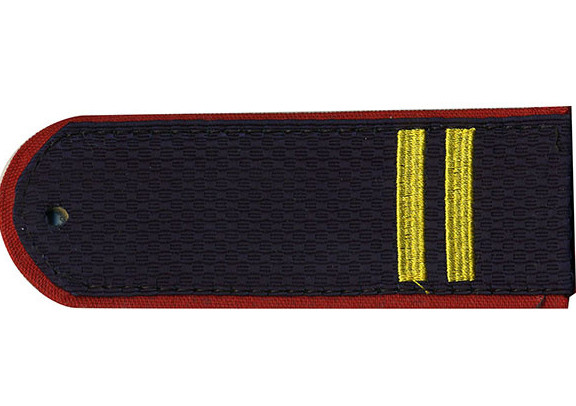
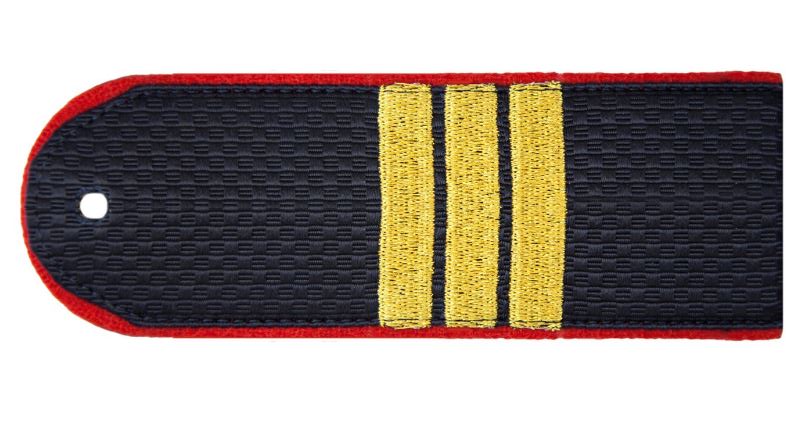

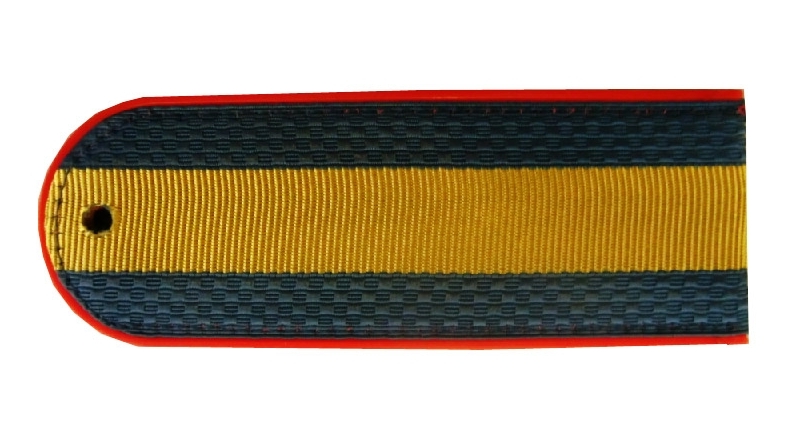
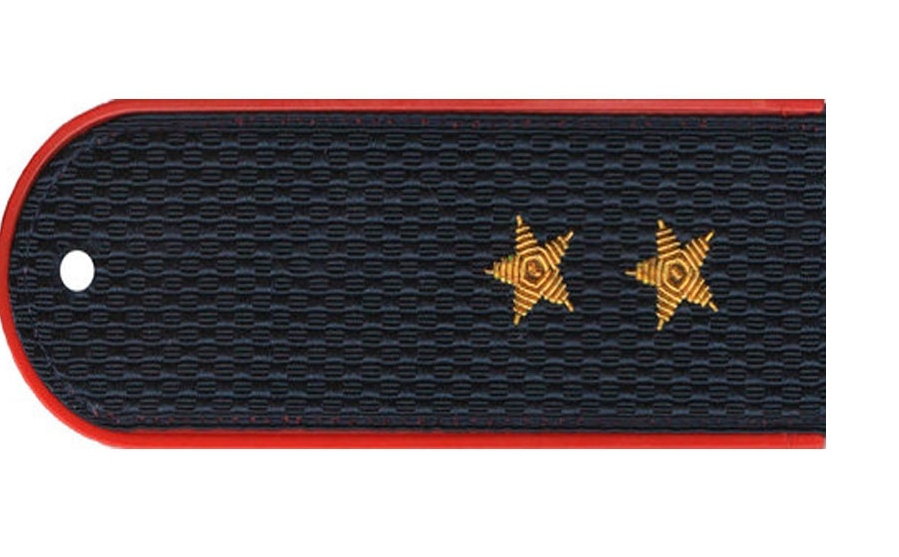
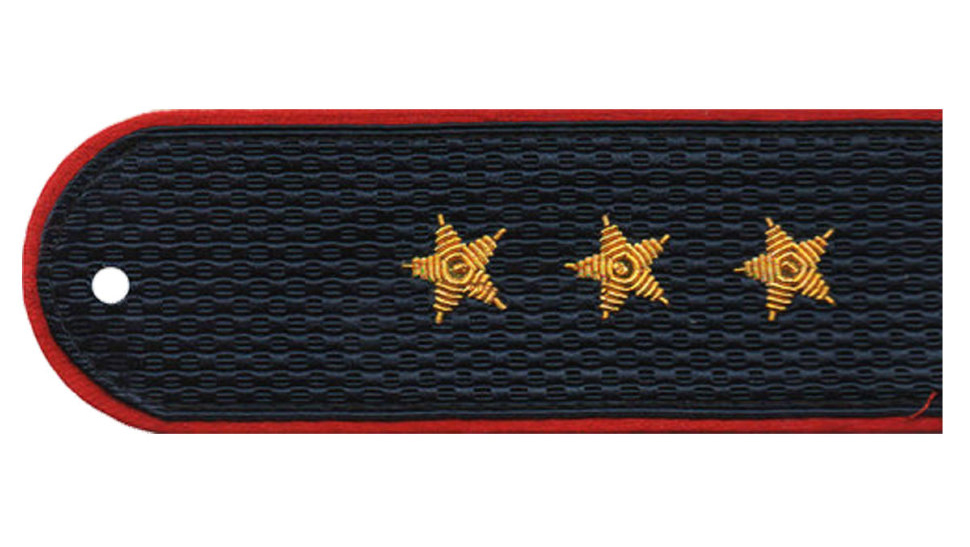
Officer staff
The following ranks belong to the junior officer corps: junior and senior lieutenant, captain. The senior wears the shoulder straps of a major, lieutenant colonel and colonel. The color of the epaulette is blue, the stripes are red, the insignia are yellow, the uniform is semicircular.
| Rank | Number of stars, placement scheme, their diameter | Position and number of stripes |
| Lieutenant | 2, 21 mm, on both sides of the stripe | 1, along the shoulder strap |
| Junior Lieutenant | 1, 21 mm, opposite the emblem | Same |
| Senior lieutenant, differences from junior | 3, 21 mm, on the shoulder strap, the senior lieutenant has them on both ends of it | The same as lieutenant's shoulder straps |
| Captain | There are 4 of them on the captain's shoulder straps, 21 mm, two on the stripe, and 2 more on the sides of it. | Same |
| Major | One, the same diameter, between the stripes | Like the captain |
| Lieutenant colonel | The lieutenant colonel has two of them, the same diameter, on stripes | Also |
| Colonel | Three, 21 mm, 2 of them on stripes, one between them | Like the captain |
Each shoulder strap has both stars and stripes. Only their combination changes. The size is slightly larger than that of junior ranks.
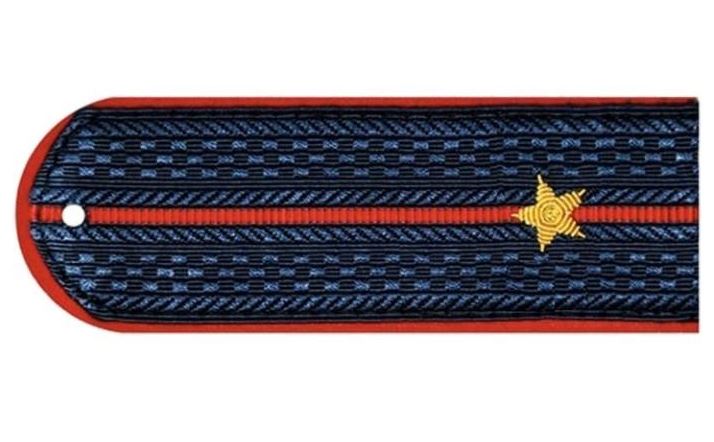
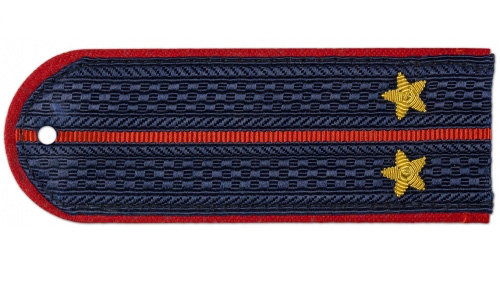
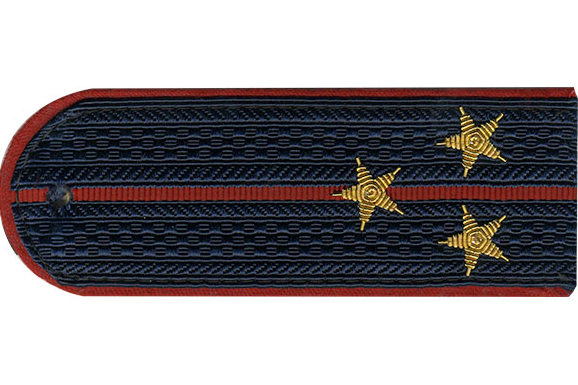
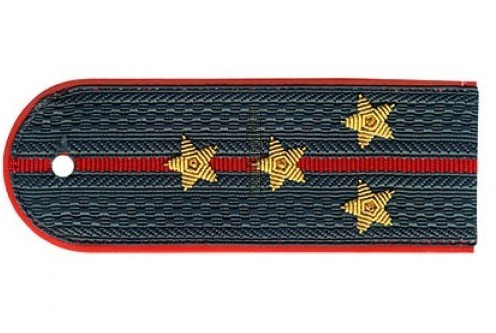
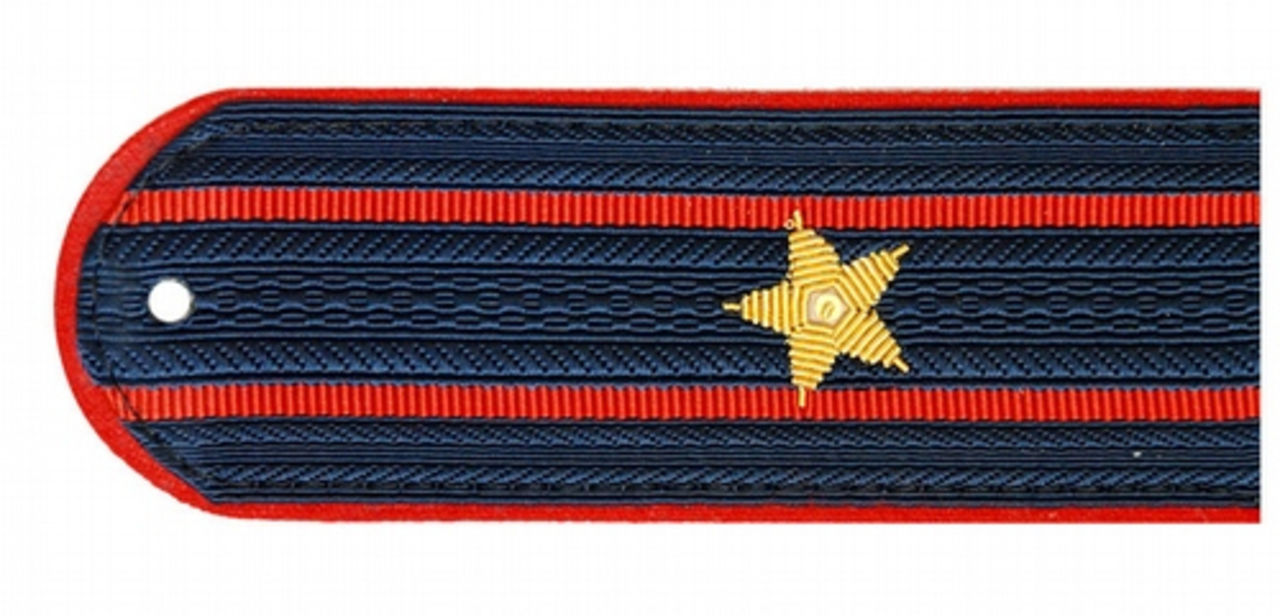
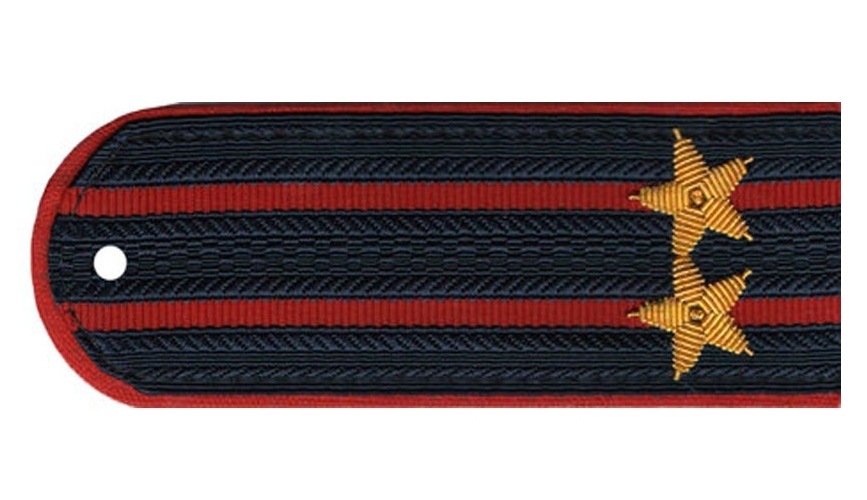

Generals' shoulder straps
The shoulder straps of the Ministry of Internal Affairs for senior ranks are slightly different. The diameter of the stars for general positions is slightly larger. The shape is trapezoidal, the color of the shoulder straps is gray. The insignia are yellow.
| Rank | Major General | Lieutenant General | Colonel General | General of Police of the Russian Federation |
| What insignia are present? | Stars | The same | Only stars | Also |
| Sprocket placement diagram, their diameter and quantity | One, in the center | Two, one after another | Three, same | Four, in the center along the shoulder strap |
| Position and number of stripes | No | No | No | No |
Generals' ranks are determined by the stars on their shoulder straps. There are no stripes on them. The higher the rank, the greater the number of stars.
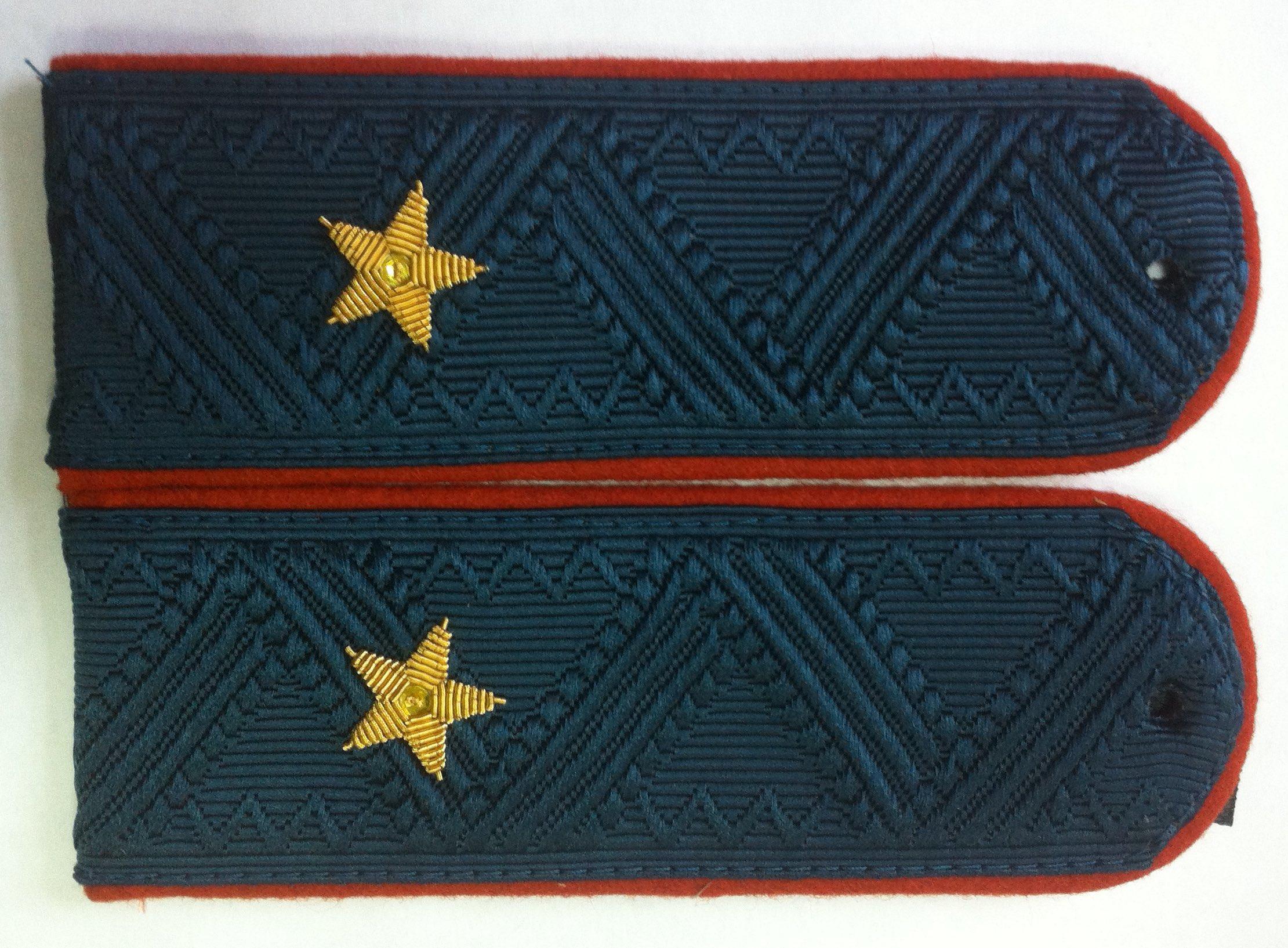
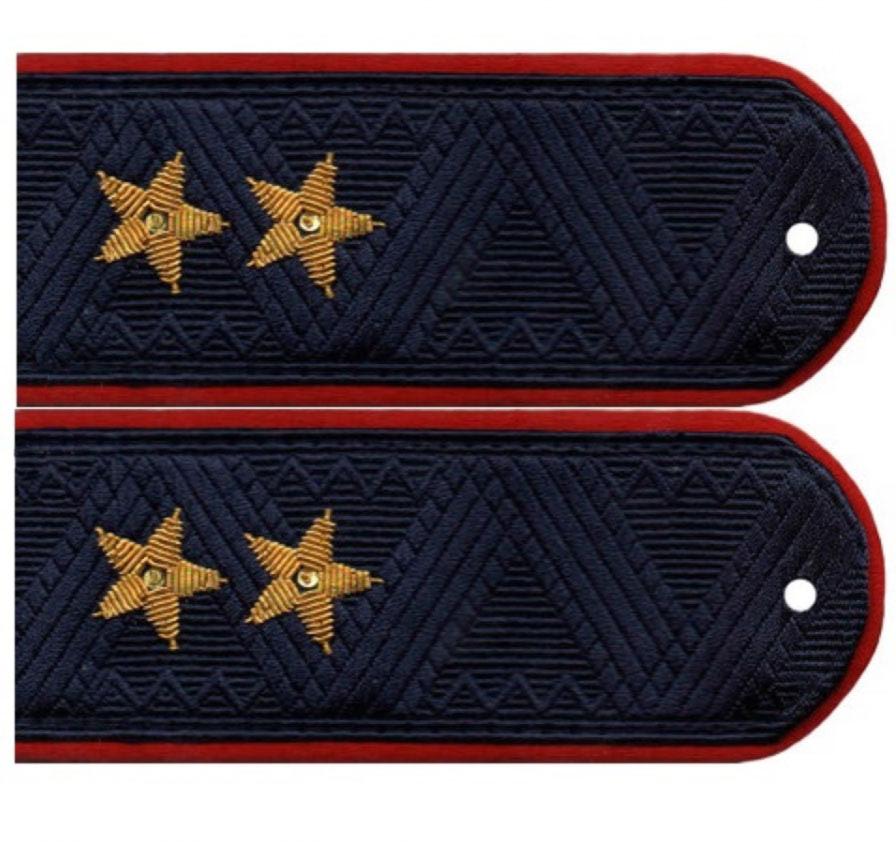
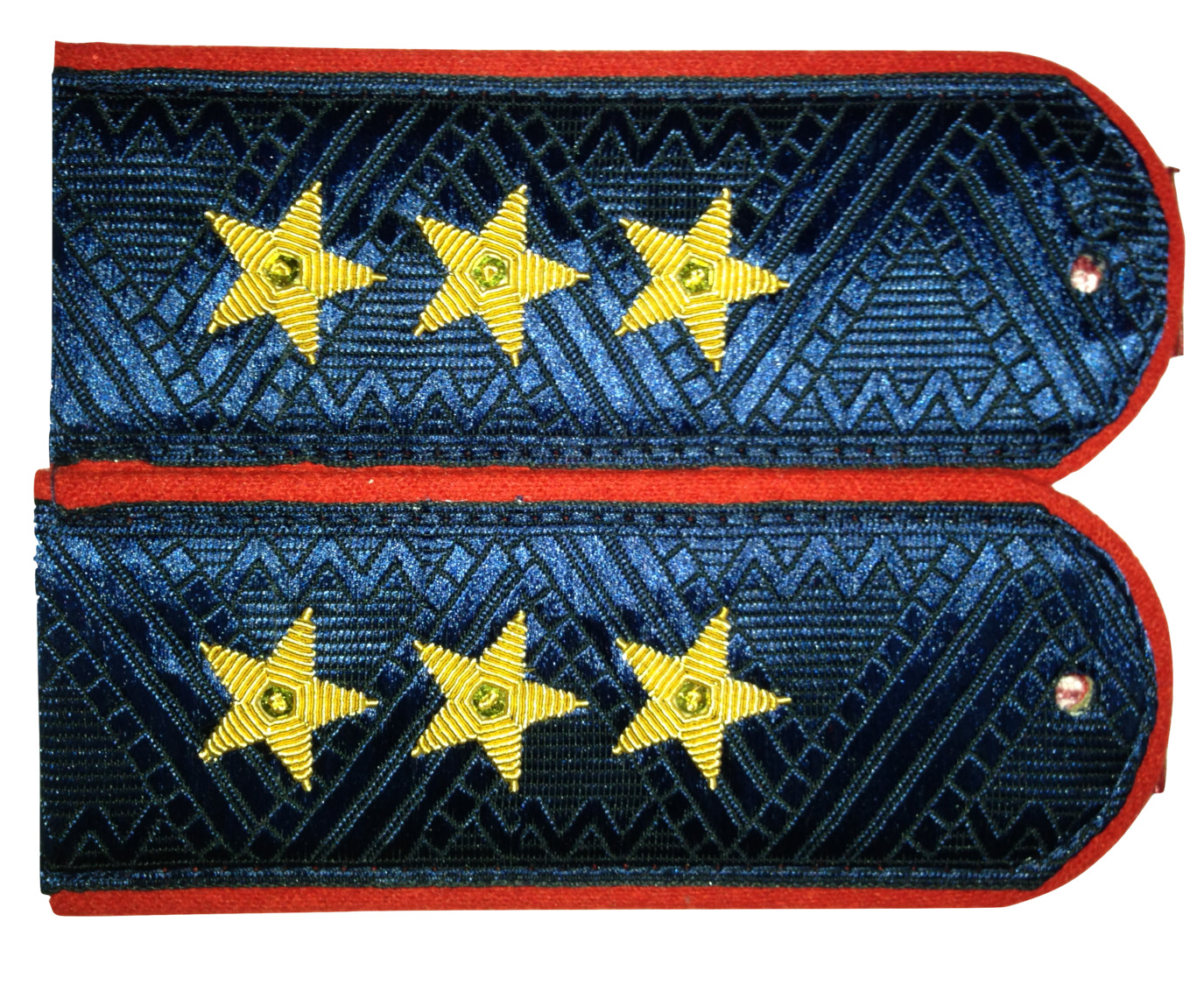
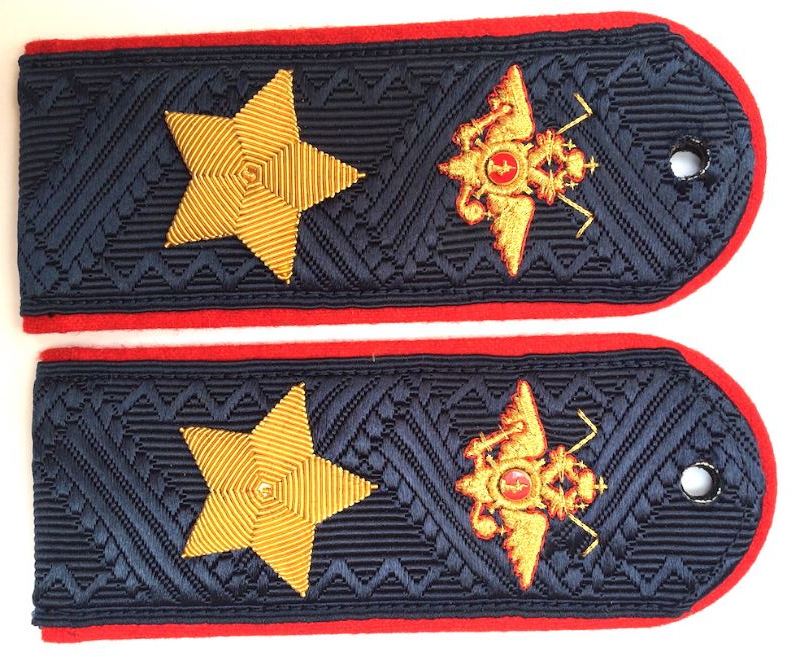
Basic rules for placing stars
ABOUTThe main principles of placing stars are by seniority (the higher the rank, the more insignia) and their different placement depending on the number and location of stripes. The diameter increases from junior to senior positions. The gap between the edge of the shoulder straps and the center of the star depends on their number and size and can be 25 or 50 mm. The first option is used:
- for the captain;
- Lieutenant General;
- Colonel General;
- ensign.
The second variant is typical for the ranks of junior lieutenant and major general. The distance between several stars located along the entire length of the epaulette does not change, regardless of rank and service. It is always 25 mm.
Contrary to popular belief, stars are not only made of metal. In some cases, they are also made of plastisol. The shape and diameter do not change.
The plates on the shoulder straps can also have different sizes. Wide ones are 20 by 45 mm long and wide, narrow ones are 10 by 45 mm.
How to attach stars
For fastening, you will need any strong threads that match the color of the epaulettes so that they are not noticeable against the general background. The tools you need to prepare are an awl, a ruler, and scissors. The distance is measured from the center of the first star to the lower edge of the epaulette. Step-by-step instructions:
- Measure the required distance.
- Use a marker, pen or pencil to mark a point where the insignia will be attached.
- Carefully pierce a small hole with an awl.
- Insert a star.
After this, the tabs are unbent and the badge is firmly fixed. During work, you need to be very precise and accurate. The location of the symbols on both shoulder straps must be absolutely identical, otherwise the employee may be held liable for improper appearance.
Only traditional Russian-style stars with edges may be used for fastening. The field uniform is supposed to have insignia of a dull gray color. For the dress uniform, symbols of a golden-yellow color are used.
You should purchase insignia for fixing only in specialized places where all the necessary accessories for military uniforms are offered. It is recommended to immediately take a large number of emblems for field uniforms with a reserve, because during constant exercises, the stars easily fly off, even if they are securely fastened. Most often, they fall out when they touch the lining of winter clothing - a pea coat or overcoat.
Never try to pierce a plastic shoulder strap with sharp scissors. This will only deform it. Only an awl, which is used in shoemaking, is suitable for this purpose; it is used to make small, neat holes. It is better to use a wooden ruler so that all the numbers and divisions are visible as clearly as possible.
Before putting on the suit, you should check the fastening for strength. It is better to do this right away, so that the star does not slip off during training or maneuvers.
People who are just joining the police often underestimate the importance of wearing epaulettes correctly. Beginning employees of the Ministry of Internal Affairs should pay attention to the correct fastening of the stars so that the management does not have any complaints about how the uniform looks. It can be said that epaulettes are, in a sense, the face of the employee, his business card.
Video


